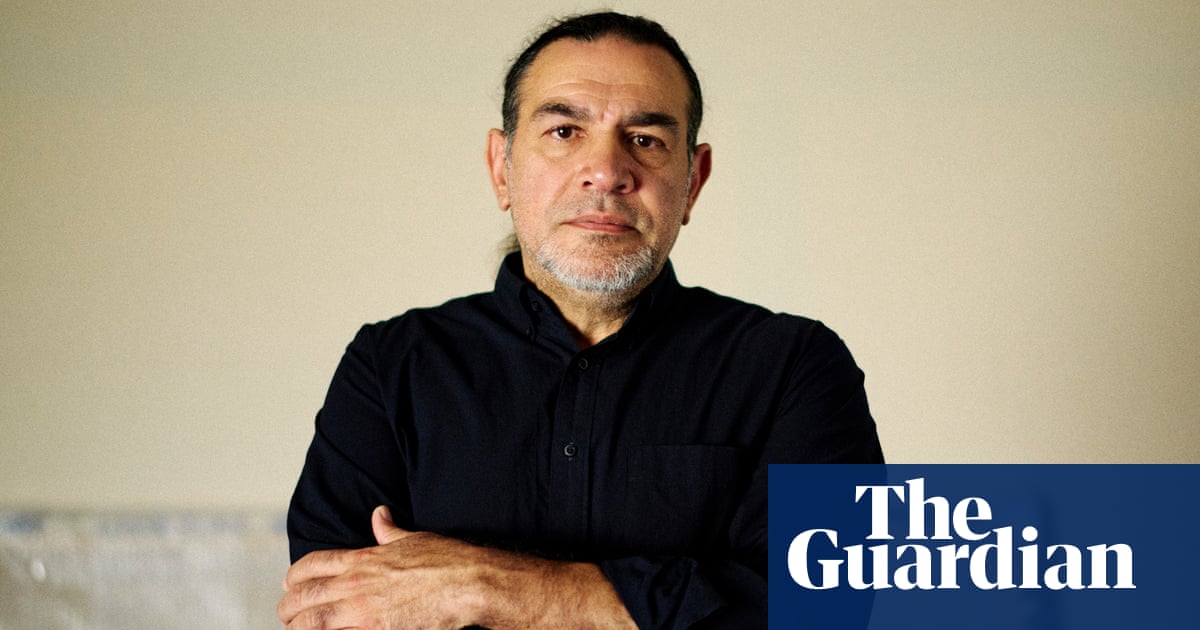Two complaints have been filed in Algeria against the French-Algerian author Kamel Daoud, winner of France’s most prestigious literary award, and his wife, a therapist, alleging that they used a patient’s life story as the basis for his prize-winning novel.
The writer, the first Algerian novelist to be awarded the Prix Goncourt, won this year’s prize for his novel Houris, a fictional account of a young woman who lost her voice when an Islamist cut her throat during the country’s brutal 1992-2002 civil war.
A survivor of the conflict between the Algerian government and Islamist groups – in which up to 200,000 people were killed and thousands more disappeared, or subjected to torture and sexual violence – has said the story uses her experience.
Using a speech aid, Saâda Arbane told Algerian TV that the story of Aube, the central character in Houris – which has not been published in Algeria – is hers, as she related it during treatment to the therapist who is now the novelist’s wife.
“Right after the publication of the book, we filed two complaints against Kamel Daoud and his wife Aicha Dehdouh, the psychiatrist who treated the victim,” her lawyer Fatima Benbraham told Agence-France Presse on Wednesday.
Both complaints, the first on behalf of a national organisation for victims of terrorism in Algeria and the second on behalf of Arbane, were filed with the court in Oran, where the author and his wife live in Algeria, Benbraham said.
The lawyer said the cases alleged “violation of medical confidentiality … as well as the defamation of victims of terrorism and the violation of the law on national reconciliation”, which bans publications regarding the period of the civil war.
The law drastically restricts what can be said about the conflict and states that anyone using the “wounds of the national tragedy” to weaken the Algerian state can be punished by prison or a fine.
The complaints were first lodged in August, Benbraham said, some time before Daoud won the Goncourt. “We did not want to talk about it, so it wouldn’t be said that we wanted to disrupt the author’s nomination for the prize,” she said.
Antoine Gallimard of the publishing house Éditions Gallimard has defended Daoud, who worked as a journalist and columnist in Algeria but now works in Paris for the French magazine Le Point, and his wife, saying they are the victims of orchestrated attacks.
“While Houris was inspired by the tragic events that occurred in Algeria during the civil war of the 1990s, its plot, its characters and its heroine are purely fictitious,” Gallimard, who was told the publishing house could not participate in this month’s Algiers book fair, said this week.
after newsletter promotion
“Since his novel’s publication, Kamel Daoud has been the target of violent and defamatory campaigns orchestrated by certain medias close to the regime, of whose nature everyone is aware,” the publisher added.
“Now, after his book was banned and his publishers forbidden to attend the Algiers book fair, it’s the turn of his wife, who has played no role whatsoever in the sourcing of Houris, to see her professional integrity attacked.”
Daoud told Le Monde in September that so little was taught about the violence of the 1990s in Algeria that his own teenage daughter had not at first believed that his book could be based on real events.
Algeria’s war of independence against France was well taught, he said, but the civil war had not been addressed. “During the war of independence, violence was noble, we were defending ourselves,” he said. “In 1992, we were killing among ourselves.”

 3 months ago
65
3 months ago
65













































